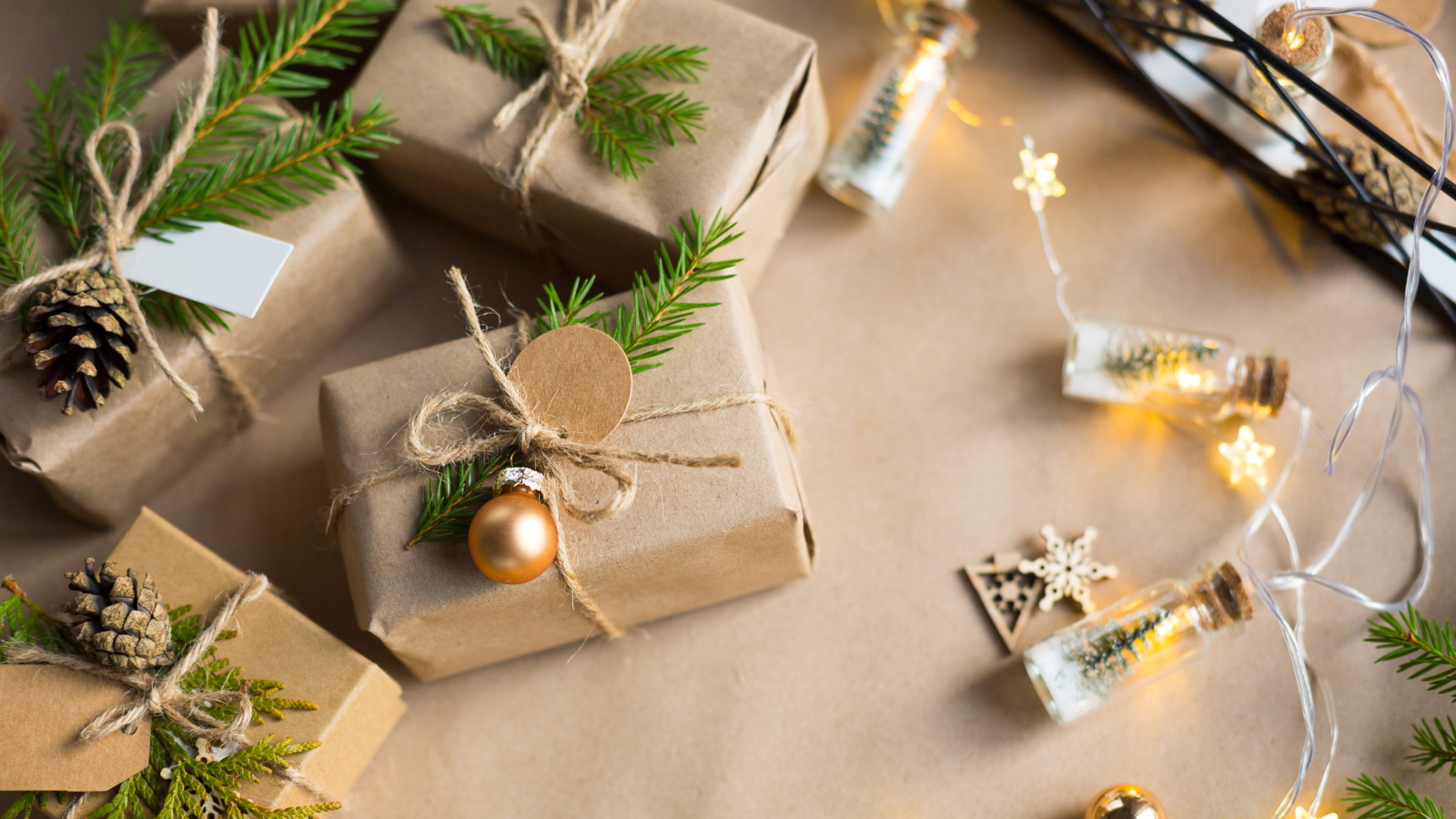
The many traditions of the holiday season brings a lot of waste that gets discarded in the garbage - from torn up wrapping paper to food scraps. However, it doesn't have to be such a wasteful time of year, as plenty of it can be put straight in your compost bin and turned into organic matter to feed the plants in your yard.
If you don't already make your own compost, use the holiday season as a starting point to collect lots of unusual compost ingredients. Of course, not every last bit of trash you accumulate during the festivities can be composted, but there are lots of items that certainly can.
Keen to make greener choices this Christmas, but not sure where to get started? Look no further. Here are five items of festive waste you can compost, as recommended by experts.
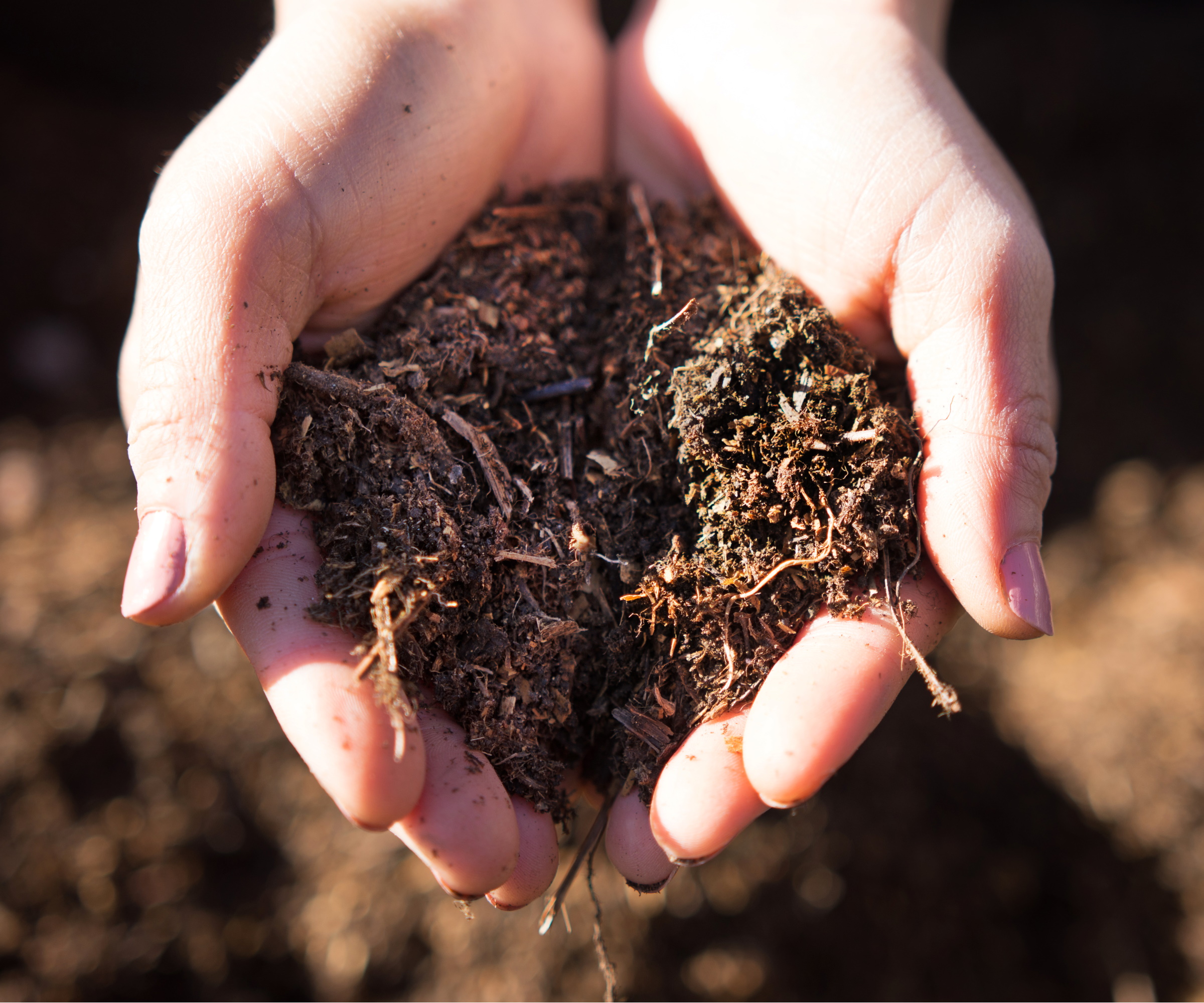
5 types of festive waste you can compost
An easy tell for if you can put something in your compost bin is assessing whether it has been treated by chemicals or is made of synthetics. If the answer is yes, it can't be composted. However, the below five items are festive waste you can put in compost:
1. Untreated wrapping paper
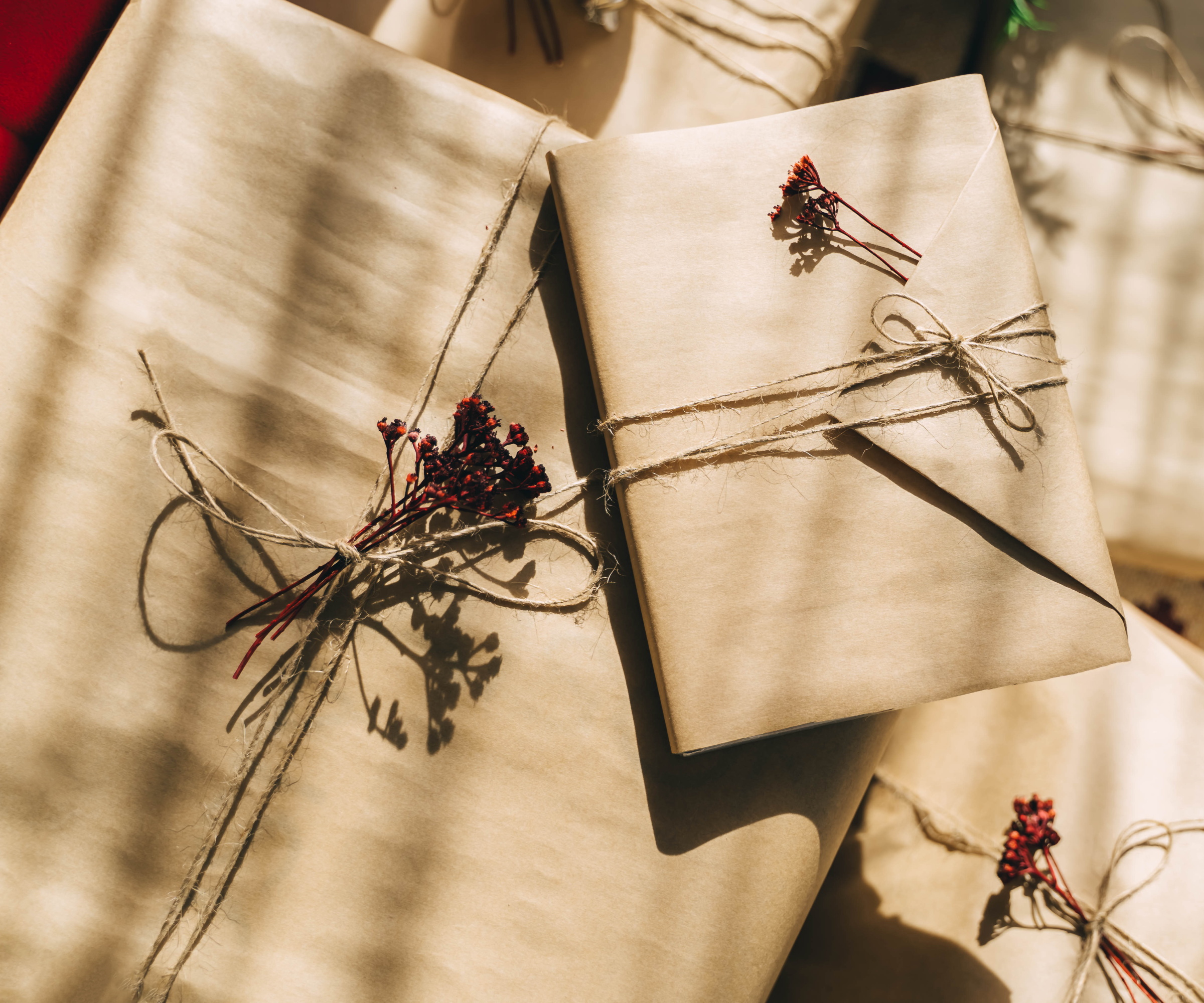
Paper is a common material put in compost bins. It makes up a brown material, providing carbon in the nitrogen-carbon ratio required for successful composting. However, when it comes to wrapping paper, it's important that it's natural, untreated paper.
'Uncoated, non-glossy wrapping paper made of plain paper is compostable. Glossy, metallic, or laminated papers, and those with glitter or heavy inks, is not compostable,' says Lauren Click, founder of Let's Go Compost.
Treated wrapping papers tend to contain inks, paint, plastics, and other synthetics that not only won't decompose in your heap, but might release harmful chemicals into your compost.
Lauren suggests to give the wrapping paper a rip test: 'Paper that tears easily is likely compostable,' she explains.
The good news is there are plenty of Christmas gift wrapping ideas that you can use compostable materials for. Opt for biodegradable wrapping paper, like this on on Amazon and dress it up with beautiful embellishments. Just make sure to remove any tape, ribbons, or embellishments before composting the paper.
2. Fruit and vegetable scraps
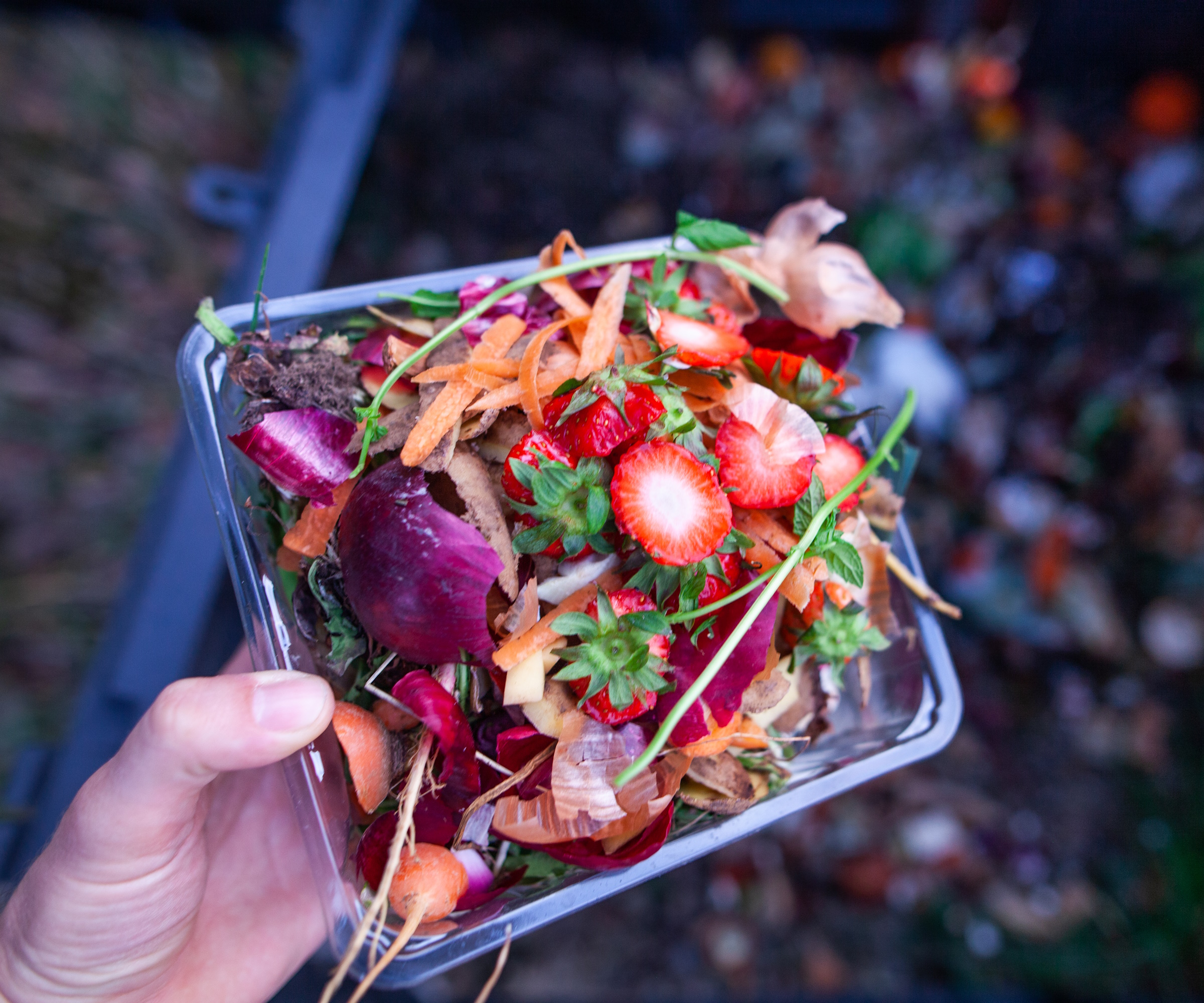
The winter holidays is the perfect time to think about using kitchen waste in the garden. There are plenty of food scraps from growing your own Christmas dinner that you can add into a compost pile.
'Purchasing only what is needed and eating the leftovers is the best way to have less to food waste, but for the festive items that you do have left, you can add them to the compost bin,' says Colleen Falicki, founder of Back to Earth Compost. 'This includes any fruits and veggies,' she adds.
Things like carrots, sprouts, potatoes, and broccoli can all make up green materials for composting. However, it's best to avoid liquids, meat, bones, dairy, or grease which may affect the decomposition rate of your compost and attracts pests - it might lead you to having to get rid of rats.
To stop compost smelling bad from food scraps, make sure to keep turning your compost and put in enough brown materials alongside the greens.
3. Real Christmas trees
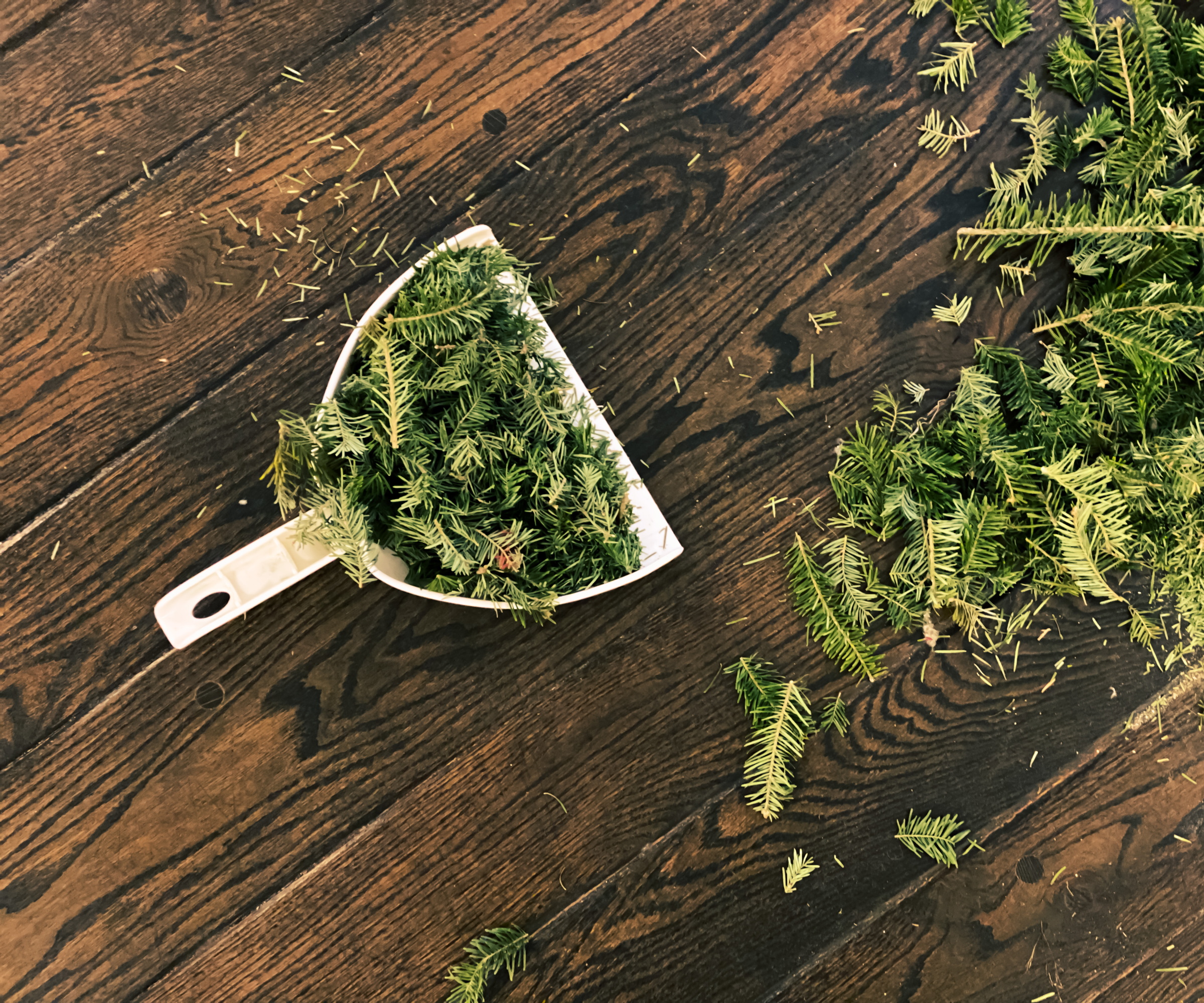
If you've chosen a real tree for your Christmas tree ideas this year, then don't make the real Christmas tree mistake of discarding it at the end of the season; your tree can be chopped up and put in the compost bin.
'The vast majority of real Christmas trees are composted,' says composting expert Jeff LeBlanc from Denali. 'Christmas trees that have extensive tinsel, bulbs, and lights cannot be composted as this material needs to be removed,' he warns.
Make sure to chop up and shred tree materials. You might need a range of essential pruning tools and sawing tools to do this, like this saw from Walmart.
'Don't compost treated or painted trees, as chemicals can harm compost microbes,' Lauren notes.
4. Fading Christmas plants
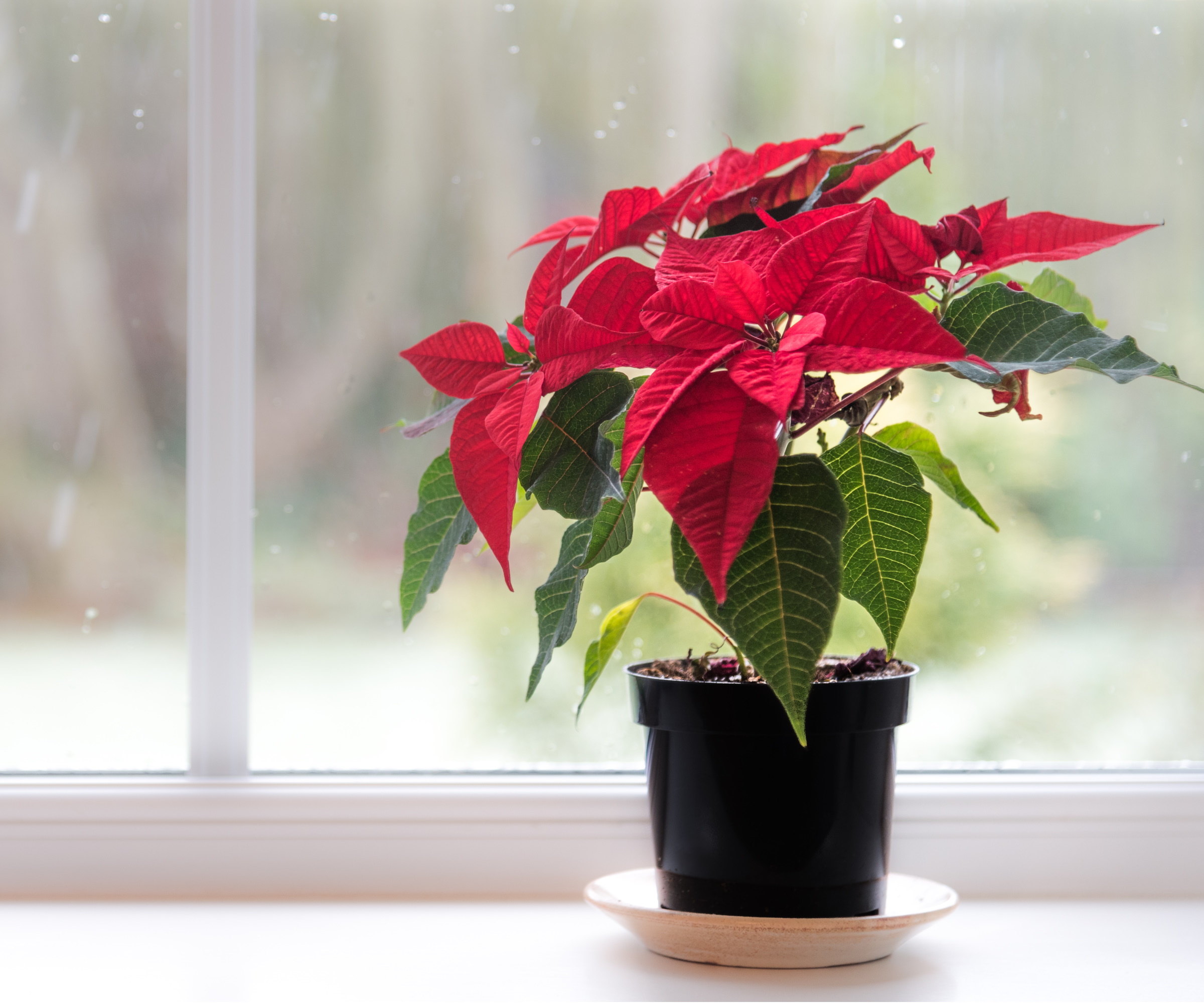
Decorating with Christmas plants and Christmas foliage is a beautiful way to bring the outdoors in for the festive season. When this plant material starts to fade and die, it presents the perfect green material for composting.
This includes a poinsettia dropping leaves and fading away, and indoor bulbs to force for Christmas that have finished flowering. 'The bulbs themselves are better saved for replanting, not composting,' says Lauren. 'Dead foliage and stems, provided they’re disease-free, can be cut up and added into the compost heap,' she advises.
To speed up composting, cut up your materials before adding them in to expose larger surface areas to the microbes breaking them down. You can use these pruning shears from Amazon to do this.
5. Untreated holiday cards
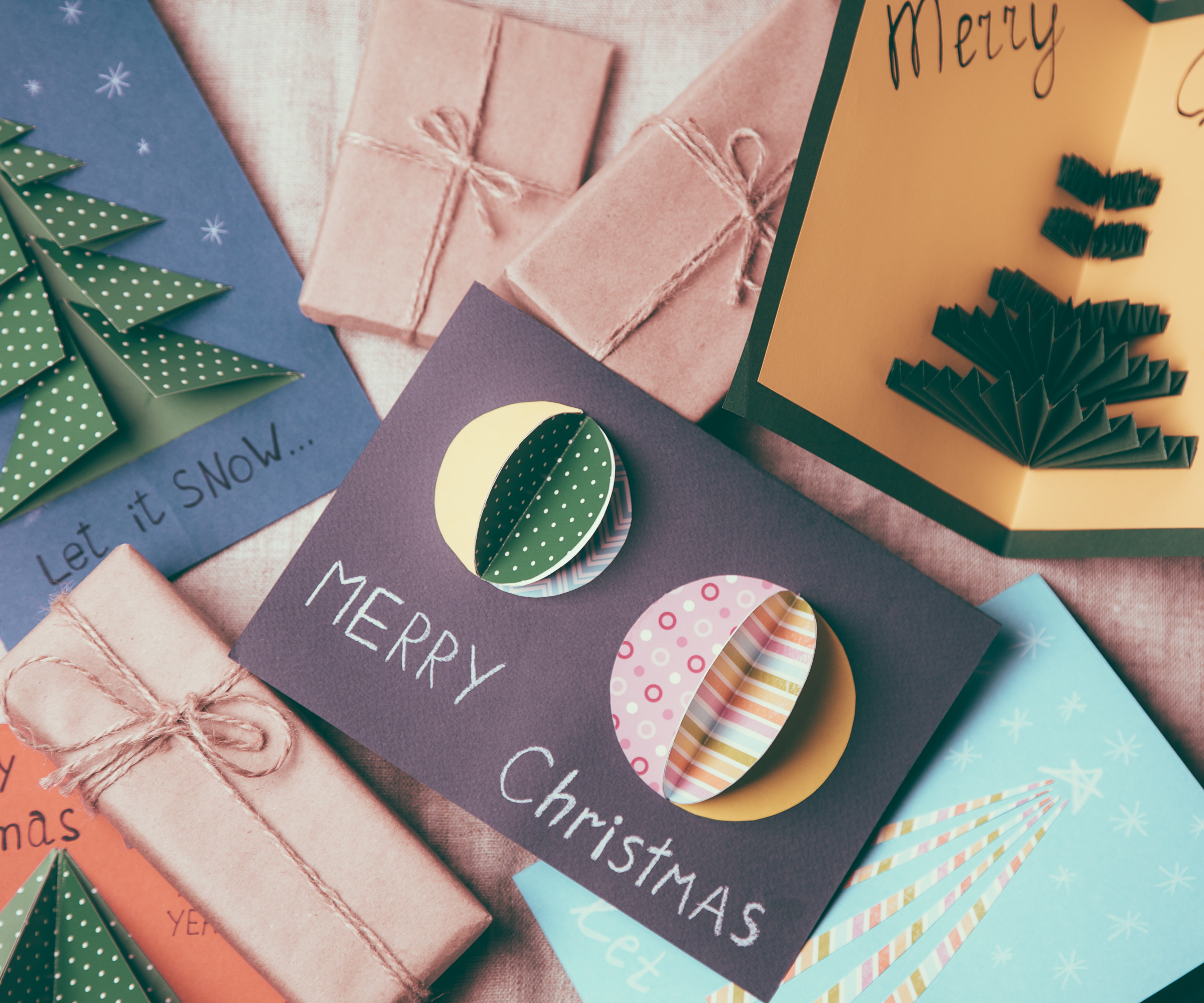
Another source of paper that often gets thrown away at this time of year is holiday cards. You can repurpose your holiday card display after the festivities have passed in a number of ways. Of course, keep hold of any sentimental ones, but those you would otherwise discard can be placed in compost.
Just like wrapping paper, you should only compost cards that haven't been treated with ink, chemicals or plastic. It can also be wise not to include parts of cards that have written ink on them - use these Walmart scissors to cut up the cards accordingly.
An alternative idea is gifting your loved ones holiday seed cards (like these from Amazon) which can be planted directly in the ground to grow plants.
FAQs
Can you compost a Christmas wreath?
You can compost Christmas wreaths made from real plant materials, but not those made from faux plants and synthetics. If you have a Christmas wreath embellished with ribbons and other decorations, make sure to remove them before putting your wreath in the compost. You might also find it helpful to chop up your wreath to speed up the rate of decomposition.
Repurposing festive waste you can compost is just one way to have a green Christmas. There are also plenty of sustainable Christmas décor ideas to take on board, including recycled Christmas decorations.







